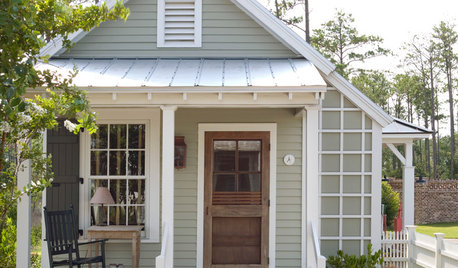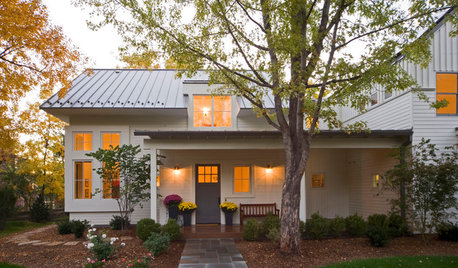zillow
C Marlin
10 years ago
Related Stories

MOVINGHow to Avoid Paying Too Much for a House
Use the power of comps to gauge a home’s affordability and submit the right bid
Full Story
SELLING YOUR HOUSEHelp for Selling Your Home Faster — and Maybe for More
Prep your home properly before you put it on the market. Learn what tasks are worth the money and the best pros for the jobs
Full Story
HOUZZ TOURSHouzz Tour: Major Renovations Aid a Usonian Home
Its classic lines got to stay, but this 1950s home's outdated spaces, lack of privacy and structural problems got the boot
Full Story
HOMES AROUND THE WORLDThe Best Church Conversions on Houzz
This collection of heavenly homes is guaranteed to inspire
Full Story
HOME TECHWake Up to the New World of Connected Alarm Clocks
Use your smart phone to enhance your alarm clock, to get more music and better sound than ever before
Full Story
MOVINGTips for Winning a Bidding War in a Hot Home Market
Cash isn’t always king in a bidding war. Get the home you want without blowing your budget, using these Realtor-tested strategies
Full Story
VINTAGE STYLE15 Ravishingly Retro Kitchen Schemes
Travel back in time to create a playful and appealing vintage style in the kitchen
Full Story
HOW TO PHOTOGRAPH YOUR HOUSEAttract Home Buyers Easily With Great Photography
Show your home's best face in real estate listing photos to have potential buyers knocking down your door
Full Story
ARCHITECTUREHow to Design a Storybook Cottage
A client’s request: “Build me a house where Disney meets Tudor.” The architect explores the details that make the style
Full Story
HOUZZ TOURSHouzz Call: Show Us Your Farmhouse!
Bring on the chickens and vegetable patches. If your home speaks country, it might appear in a featured ideabook
Full StoryMore Discussions









mrscarrots111
LuAnn_in_PA
Related Professionals
Charleston Architects & Building Designers · Franklin Architects & Building Designers · Madison Heights Architects & Building Designers · Portage Architects & Building Designers · Troutdale Architects & Building Designers · Citrus Heights General Contractors · Dothan General Contractors · Fort Salonga General Contractors · McPherson General Contractors · Norman General Contractors · Overlea General Contractors · San Marcos General Contractors · West Whittier-Los Nietos General Contractors · Miami Home Stagers · New Hope Home Stagersgeoffrey_b
gyr_falcon
artemis78
lazy_gardens
xamsx
Zoe52
violetwest
ladynimue
lizzie_nh
jane__ny
violetwest